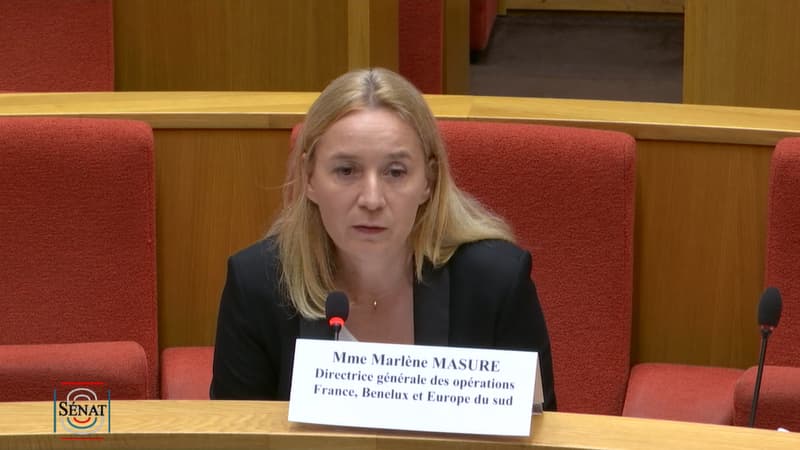Two representatives of the TikTok social network passed, this Thursday, June 8, before the Senate investigation commission. After Eric Garandeau, director of public relations, it was Marlène Masure, director of operations for France, Benelux and Southern Europe, who was interviewed.
Among the vexing issues – and there are many – mentioned in the session: the issue of addiction. It was Marlène Masure who was questioned on this subject.
“The issue of digital well-being is important to us. We are thinking of all solutions. My job is to make sure that we are going to create the most qualitative content possible, so that the experience generates the most value for the users. “Marlene Masure replied.
“Reality are children who no longer sleep”
A response that was not very convincing to his interlocutors, whose discreet annoyance could be read on their faces. “Forgive me, but it’s slang, all that. […] The reality is not there, it has nothing to do with the quality of its content”, said Claude Malhuret.
The French operations director then opposed various measures implemented by the app, such as the 60-minute viewing limit, proposed for a few months. “Today, three-quarters of those under 18 have not deactivated it,” he said.
Questions without answer
The 60 minute limit allows you to receive a message indicating that a viewing time threshold has been reached. The user can choose to enter a previously given code to continue using the application.
Marlène Masure also specifies that the sixty-minute period was developed with psychiatrists and doctors as part of a study, which she was asked to broadcast as part of the commission. “And how many actually close the app when they get the message?” the reporter asked. The head of TikTok France did not provide an answer.
In France, 70% of TikTok’s 15 million users are under the age of 24. 40% of 16-25 year olds spend time on the app every day. Minors – figures that here include from 4 to 18 years old – dedicate an average of 1h47 each day to the application. In addition to its addictive nature, TikTok’s algorithm has been known to lock its users into personalized “bubbles”, often fed with content harmful to mental health.
Source: BFM TV


